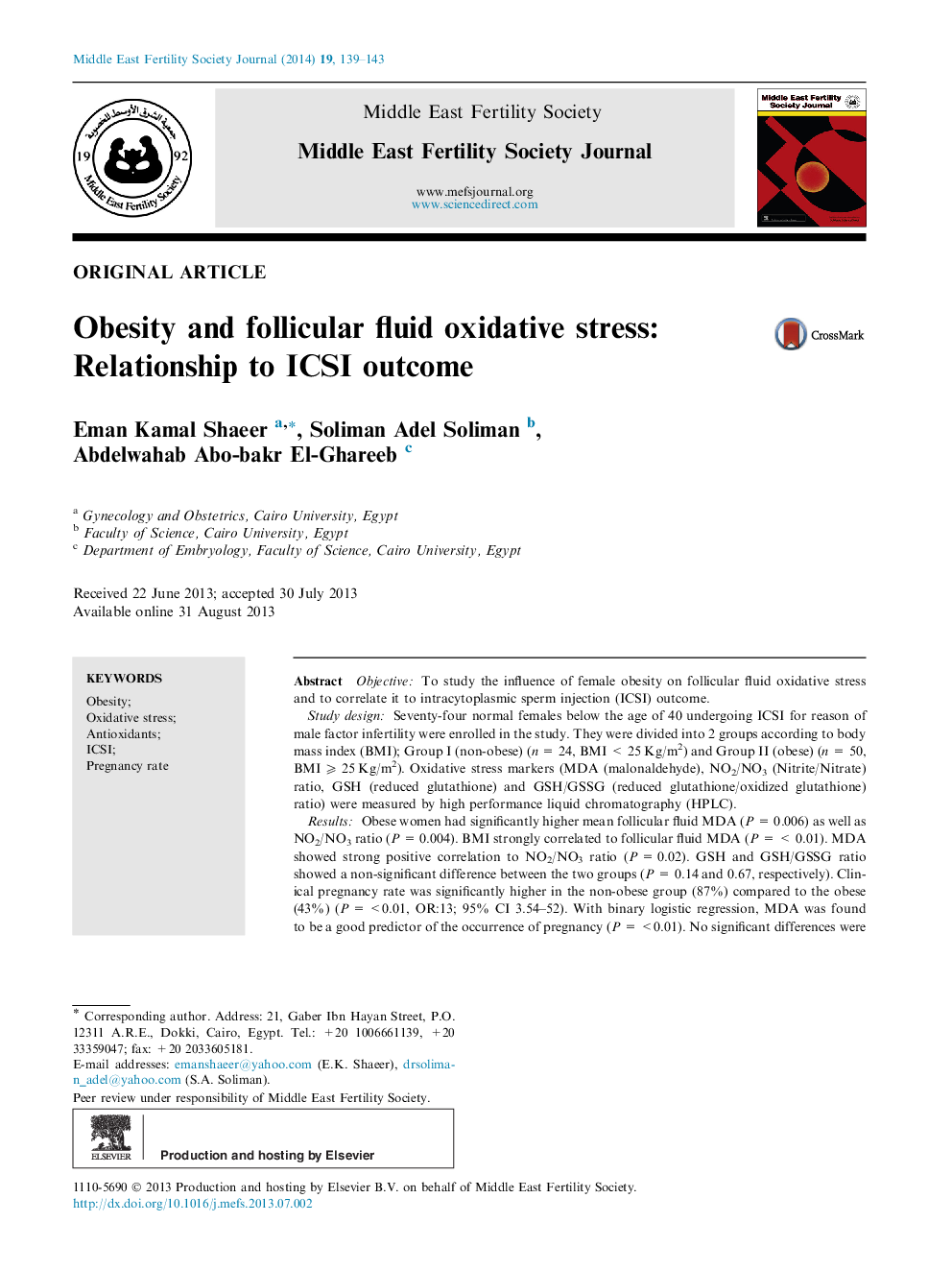| Article ID | Journal | Published Year | Pages | File Type |
|---|---|---|---|---|
| 3966178 | Middle East Fertility Society Journal | 2014 | 5 Pages |
ObjectiveTo study the influence of female obesity on follicular fluid oxidative stress and to correlate it to intracytoplasmic sperm injection (ICSI) outcome.Study designSeventy-four normal females below the age of 40 undergoing ICSI for reason of male factor infertility were enrolled in the study. They were divided into 2 groups according to body mass index (BMI); Group I (non-obese) (n = 24, BMI < 25 Kg/m2) and Group II (obese) (n = 50, BMI ⩾ 25 Kg/m2). Oxidative stress markers (MDA (malonaldehyde), NO2/NO3 (Nitrite/Nitrate) ratio, GSH (reduced glutathione) and GSH/GSSG (reduced glutathione/oxidized glutathione) ratio) were measured by high performance liquid chromatography (HPLC).ResultsObese women had significantly higher mean follicular fluid MDA (P = 0.006) as well as NO2/NO3 ratio (P = 0.004). BMI strongly correlated to follicular fluid MDA (P = < 0.01). MDA showed strong positive correlation to NO2/NO3 ratio (P = 0.02). GSH and GSH/GSSG ratio showed a non-significant difference between the two groups (P = 0.14 and 0.67, respectively). Clinical pregnancy rate was significantly higher in the non-obese group (87%) compared to the obese (43%) (P = <0.01, OR:13; 95% CI 3.54–52). With binary logistic regression, MDA was found to be a good predictor of the occurrence of pregnancy (P = <0.01). No significant differences were detected as regards parameters including estradiol on day of hCG, gonadotropin dose, number of retrieved oocytes, metaphase II(MII) and fertilized oocytes.ConclusionObesity aggravates follicular fluid oxidative stress with a negative impact on pregnancy outcome of ICSI cycles.
